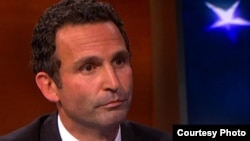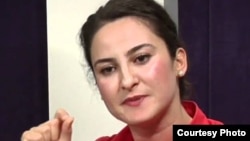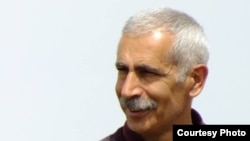Turkey has been shaken by multiple acts of terrorism since it joined the international coalition against Islamic State almost a year ago. More than 200 people have been killed, and foreign tourists are increasingly being targeted. This year has been particularly deadly, with several attacks in Istanbul.
Turkey went through a similarly turbulent period in the 1970s, when leftist and rightist students were killing each other almost every day. That bloody period ended when the Turkish military overthrew the elected government in September 1980.
Last week’s coup attempt by some elements in the military has strengthened the perception of instability and insecurity. While the Turkish people supported President Recep Tayyip Erdogan's efforts to foil the attempted coup and the international community stood by him, a large section of Turkish society sounded critical of him on his policies toward IS.
Analysts say that with the massive purges within the security apparatus coming right after the failed coup, the fight against IS will be negatively affected.
While Erdogan purges state institutions of those he believes oppose him, citizens also continue to struggle to live with increasing IS attacks and exploding bombs.
VOA interviewed a cross section of Turkish society about its feelings regarding continued IS attacks in a country that enjoyed peace until very recently. Some of the people interviewed are based in Washington. Here are some excerpts:
Omer Taspinar, 46, Brookings Institution, Washington — "IS attacks in Turkey were at first aimed at Kurdish groups. Now, Turkey as a whole has been made a target. Since Ankara has started to give more support to the anti-IS international efforts and opened Incirlik Air Base to allied planes, IS has been increasing its attacks in Turkey. IS now is getting defeated on the ground and losing its prestige, too. So it wants to commit more terrorist acts against both Turkey and the West. This is what is happening now."
Gonul Tol, 38, Middle East Institute, Washington — "Last Friday’s coup attempt will badly affect the fight against IS. More than 50,000 people have been fired. Most of them were from the military and civilian security establishment. Some of those were leading the fight against IS. Right now, the security establishment is very weak and morale is very low."
Busra Bas, 21, university student, Ankara — "Turkey was neutral to IS until the summer of 2015, but since then, the situation changed and IS started to increase its attacks and bombings in Turkey."
Soner Cagaptay, 45, Washington Institute, Washington — "Turkish-backed rebels have been attacking IS in Syria. In the short term, it will be hard to stop IS. In the long term, Turkey will be able to defeat the IS. The Istanbul airport attack has aligned the interests of Ankara and Washington in Syria. Both now want to see the IS defeated. Unfortunately, things in Turkey will likely get worse before they get better."
Asli Bellekci, 38, teacher, Istanbul — "I think IS is one of the catalyzer instruments which aims for Turkey to move into a more chaotic situation. IS is trying to create an anti-Islamic public in Turkey and scare people into submission. I hear anger and hatred from many people around me for IS."
Cagri Turkmener, 26, engineer, Kahramanmaras — "IS is trying to create a chaos and insecure environment by increasing its attacks in Turkey. They want to stain Turkey’s international credibility, too. IS has made Turkey one of its primary targets. Many foreigners are canceling their trips to Turkey because of chaotic situation. Even my uncle, who lives in the USA and is married to an Irish lady, has canceled a trip to Turkey. No Muslim can accept IS’s ideology. Muslims and all other people should react to groups like IS."
Burhan Gundogan, 53, author and poet, Tunceli — "Hundreds of years of Turkish policy was changed and we started to interfere in our neighbor's internal affairs. As it is said, you reap what you sow. Turkish leaders even called the IS 'angry youth' at the beginning. I believe Turkey started playing 'my enemy’s enemy is my friend' game."
Fusun Ersoy, 55, special needs education expert, Mersin — "Turkey turned into a country that IS can act any way it wants and whenever it wishes. Being a NATO member makes Turkey a primary target."















